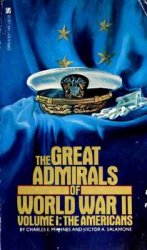Many of the ministers who had been colleagues of de Valera from the civil war era and the founding of Fianna Fail were gradually replaced by a new generation of party activists. The new generation included men born just before or after the civil war and some whose families had no record of involvement. New faces included the Cork City TD, Jack Lynch, whose earlier claim to fame was as an outstanding player in the GAA sport of hurling. Another was Lemass's son-in-law, Charles J. Haughey. Another new man, Neil Blaney, from Donegal, was the son of a veteran Fianna Fail deputy. Kevin Boland was the son of de Valera loyalist and colleague, Gerry Boland. Other stalwarts, such as Frank Aiken and Sean MacEntee, continued in office.
An indication of changing times was the passage, over the objections of the Catholic hierarchy, of legislation extending the Sunday opening of public houses to include rural areas as well as major cities. More important was the government's acceptance of the recommendations of a study titled Economic Development, prepared by Dr. T. K. Whittaker, the secretary of the Department of Finance. That report suggested a reversal of the prevailing Irish approach to economic development and government financing, which entailed a mixture of orthodox retrenchment and budget balancing combined with economic protectionism, in favor of a move toward recruiting foreign investment and foreign markets and the belated acceptance of Keynesian use of government finances to stimulate economic development. De Valera had not long moved up to the presidency when his vision of a pastoral Ireland was being abandoned by his own political heirs in the aspiration for industrial and commercial development. Other indices of a new day coming to Ireland was the commencement in 1958 of trans-Atlantic service by the national airline, Aer Lingus, and the establishment in 1960 of an authority to direct a national television service, which began in December 1961.
On the international level, the Irish ambassador to the United Nations, Frederick Boland, was elected president of the United Nations General Assembly and presided at the tumultuous session in 1960 in New York attended by a variety of national leaders, one of whom, Nikita Khrushchev of the Soviet Union, he had to call to order. Ireland also committed troops to the United Nations peacekeeping efforts in the strife-torn newly independent Congo. Ten soldiers were killed in an ambush in December of that year. It was the first of many instances, continuing to this day, of Irish involvement in UN peacekeeping missions. Another instance of less successful diplomacy was the Irish application, made in August 1961, for membership in the European Economic Community or Common Market, which then consisted of six members. Unfortunately, the veto of British membership a year and a half later by President Charles de Gaulle of France also inhibited Irish membership. To offset their mutual exclusion from Europe the British and the Irish signed a free trade agreement two years later in 1965.
In a general election in October 1961, Lemass sought his own mandate from the people. Although Fianna Fail was able to form a government, gains by both Fine Gael and Labour denied him the absolute majority that de Valera had won in 1957, forcing him to rely on the approval of some independents. But that did not inhibit his ongoing drive for Irish modernization, which even gained him a cover story in Time magazine. Further drawing world attention to developments and change in Ireland was the first visit to the country by an incumbent U. S. president. In June 1963, five months before he was assassinated, John F. Kennedy, the first American president of Irish Catholic ancestry, visited. The triumphalism surrounding the visit, which rivaled the 1932 Eucharistic Congress, suggested that the Irish interpreted Kennedy's electoral success in America vicariously as an Irish victory and indeed as a certification that Ireland was truly a nation. Kennedy astutely played into the spirit with his suggestions that had his forebears not left for Ireland, and had de Valera not been sent back to Ireland by his widowed mother in New York, they might have wound up in each other's respective office.
In April 1965 Lemass was able to win two more seats for Fianna Fail in a general election and thereby secure an absolute majority. Fine Gael, under the leadership of James Dillon, the grandson of the Young Irelander and son of the Parliamentary Party luminary, who had succeeded Richard Mulcahy in 1959, held its own. The traditionally conservative party had accepted in 1964 a program for a "Just Society" advanced by younger members led by Declan Costello, son of the coalition Taoiseach of the 1950s, which introduced a progressive and socially concerned character to the party. Labour also made significant gains, as minor groups and the number of independents declined. That same year legislation passed to correct a long-standing social issue in Ireland, the disinheritance of widows, as they were guaranteed one-half of a husband's estate, or at least one-third where there were children. In the first two months of 1965, an historic exchange of visits by the Northern Irish prime minister, Terence O'Neill, whose succession to power in 1963 suggested a new face for unionism, and Sean Lemass raised expectations for a thawing of the frozen relations and attitudes of the two states toward each other. Lemass appointed a committee that recommended a departure from the prevailing position, which regarded Northern Ireland as somewhat illegitimate and provisional, and to look upon recognition of the validity of unionist identity as the first step toward an accord. On the other hand, the evangelical minister Ian Paisley condemned the visits, which O'Neill had depicted as comparable to chatting with a lovely young lady (the Irish Republic) across the fence, as sinister. He reminded O'Neill that he, a married man, ought not to be chatting across the fence with young ladies!
The next year, which was the golden jubilee of the Easter Rising, the Irish census figures announced for the first time an increase in population, which suggested the success of Lemass's policies. A proposal by the minister for education, Donough O'Malley, for the provision of free secondary school education for all Irish children represented a continuation of the modernization policies. A more ominous note was the murder of a young Catholic by loyalists in Northern Ireland, outraged by a nationalist celebration of Easter Week, and the conviction of Ian Paisley for disturbance of the peace in his protests against nationalist gatherings in the province. Later that year, Lemass resigned as Taoiseach and was succeeded by Jack Lynch, which could be seen as marking the end of the war of independence and civil war generation in Irish political life, aside, of course, from Eamon de Valera, who at 83 years of age was narrowly reelected over Tom Higgins, the nephew of his civil war antagonist, Kevin O'Higgins, to the honorific presidency.
The Lynch government was expected to continue the process of economic and social modernization instituted under Sean Lemass, as well as to continue steps toward rapprochement with Northern Ireland. One significant gesture of modernization was 1967 legislation that removed the ban on all books that had been censored for more than 12 years. In subsequent years the standards for censoring literature would be increasingly liberalized so that, at present, only the most blatantly pornographic material encounters a ban. In fact in society at large, general standards as to acceptable language and/or topics of discussion in a few decades would reverse a prevailing Puritanism and censoriousness to one of almost licentious openness. The government joined with Britain to again apply, in May 1967, for EEC membership, but President de Gaulle again exercised his veto to refuse them entry.




 World History
World History









